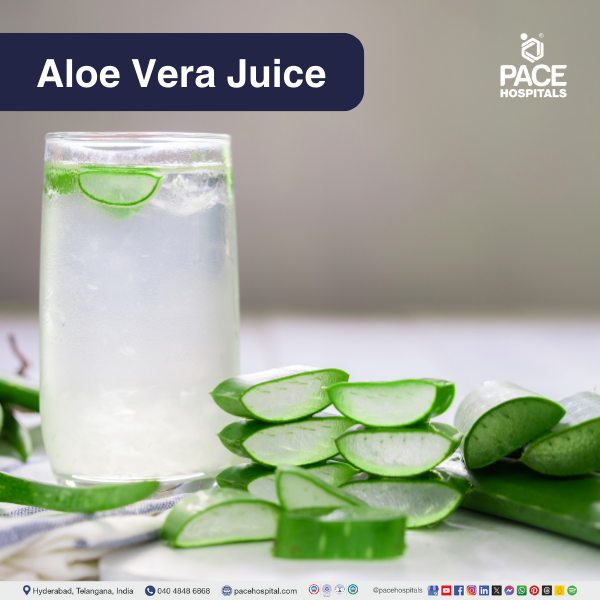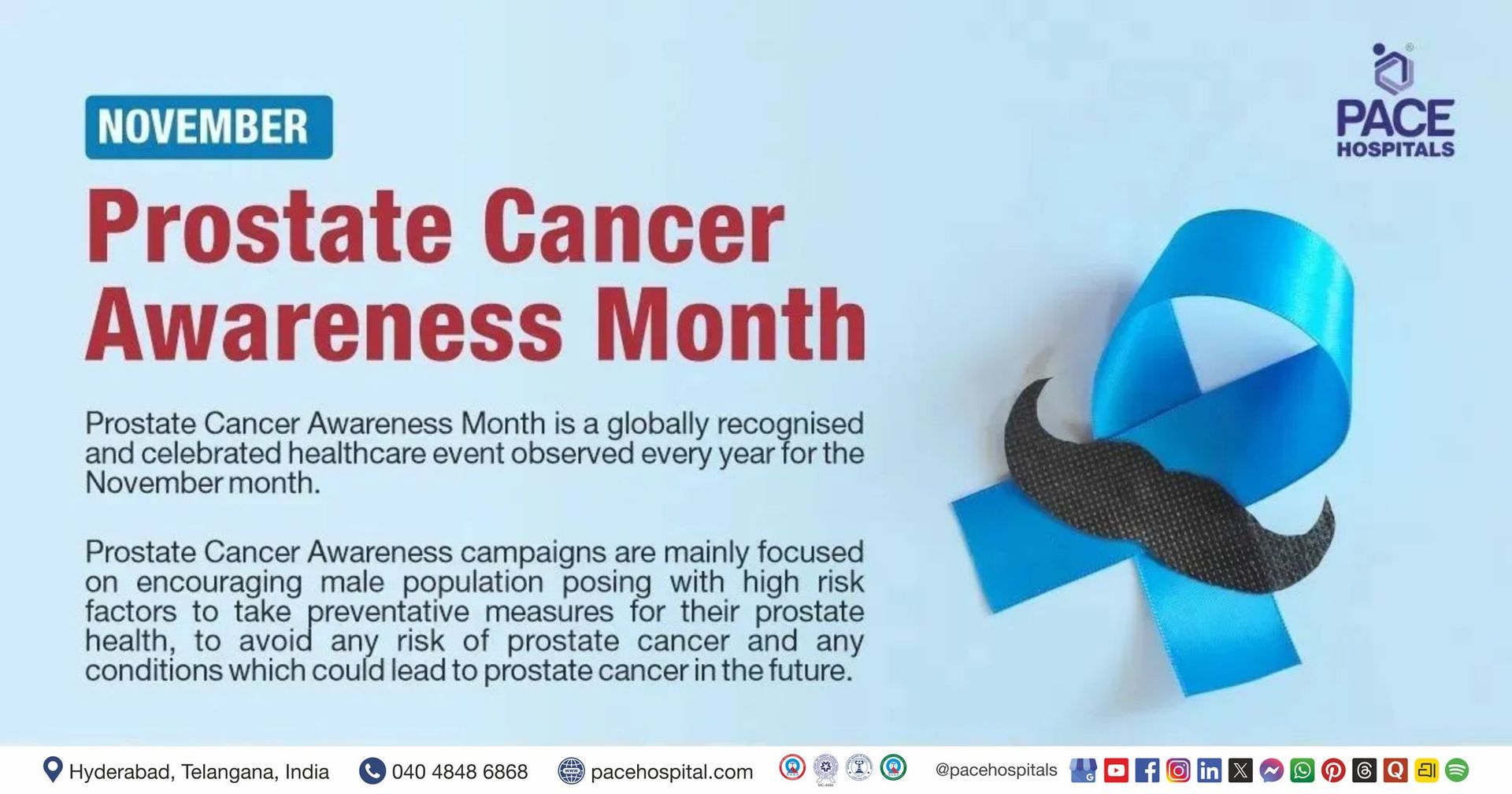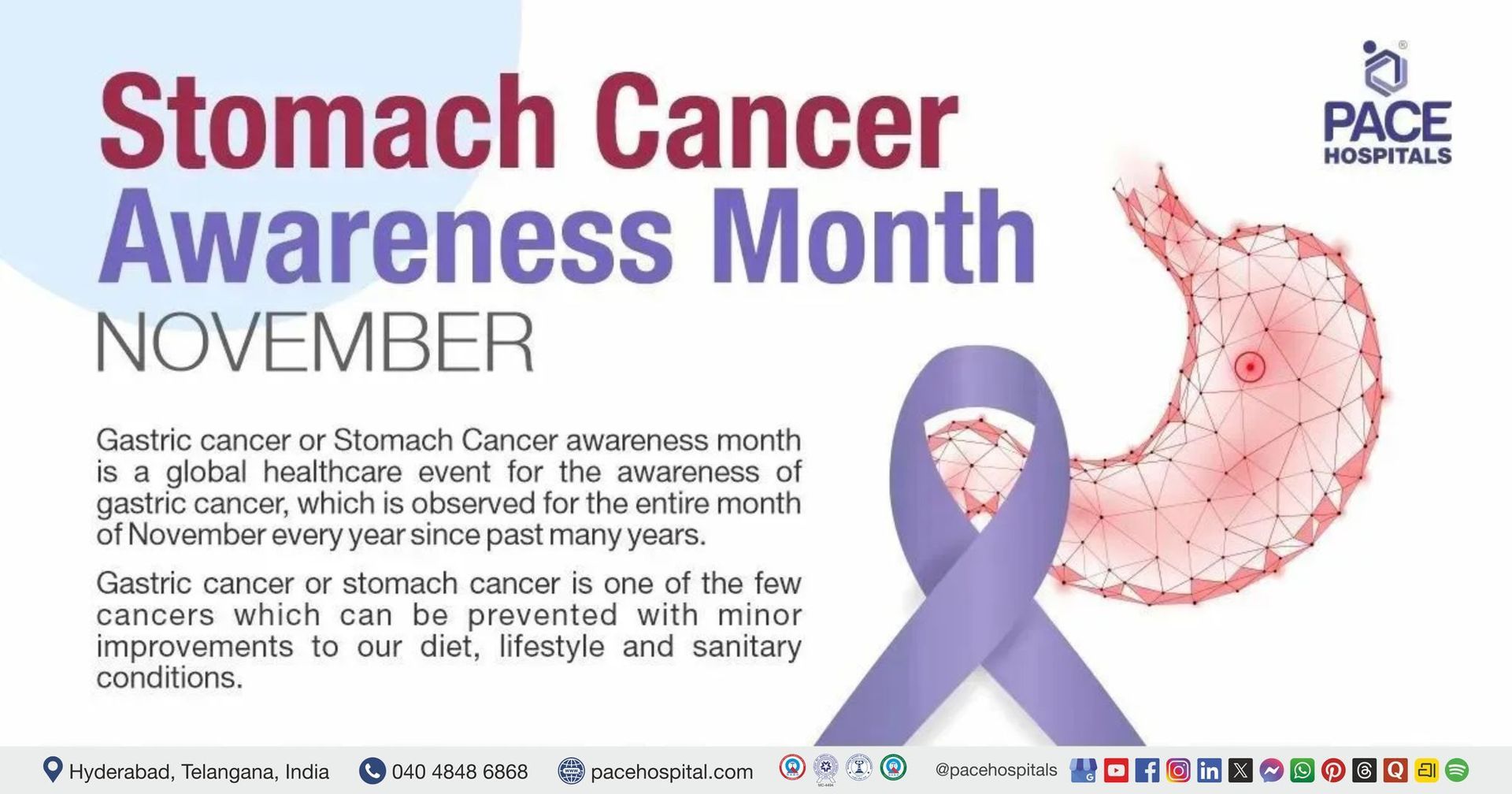15 Natural Home Remedies for Acidity, Acid Reflux & Heartburn
PACE Hospitals
What is Acidity?
Acidity is a medical condition characterised by excess acid production by the stomach glands. It rises into the oesophagus called acid reflux, leading to a burning sensation in the throat or chest commonly known as heartburn and often caused by lifestyle factors, such as overeating, consuming spicy or fatty foods, or stress. Acidity can also be triggered by medical conditions such as gastritis or an imbalance in stomach acid production.
Common symptoms of acidity include a burning sensation in the chest (heartburn), a sour or bitter taste in the mouth, bloating or nausea, difficulty swallowing and regurgitation of food or liquid.
Here are some natural remedies that can help relieve the acidity. While these natural options may help relieve mild symptoms of acidity, persistent or severe cases of acid reflux should be consulted with a healthcare professional for appropriate diagnosis and treatment.
Alongside these remedies, lifestyle changes, including preventing trigger foods and eating smaller meals, can aid in managing acidity effectively.
Natural Remedies for Acidity and Acid Reflux
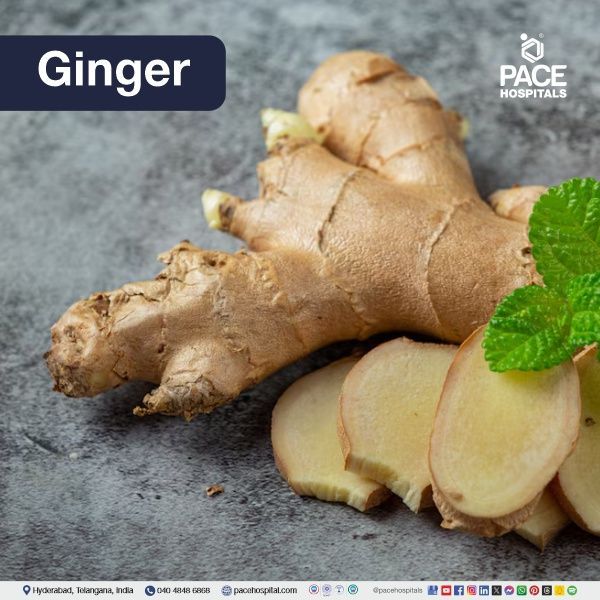
1) Ginger
Ginger (Zingiber officinale) is a well-known home remedy for acidity and gas problems. Its traditional uses include reducing intestinal gas and flatulence, soothing the stomach lining, and decreasing acid production. The active compound in ginger, gingerol, has natural anti-inflammatory properties that promote digestion and reduce the amount of acid produced in the stomach, thereby alleviating discomfort associated with acidity.
One can consume ginger by adding small slices to hot water, drinking ginger tea, or even chewing raw ginger. For best results, drink ginger tea after meals to help neutralise stomach acid and support healthy digestion.
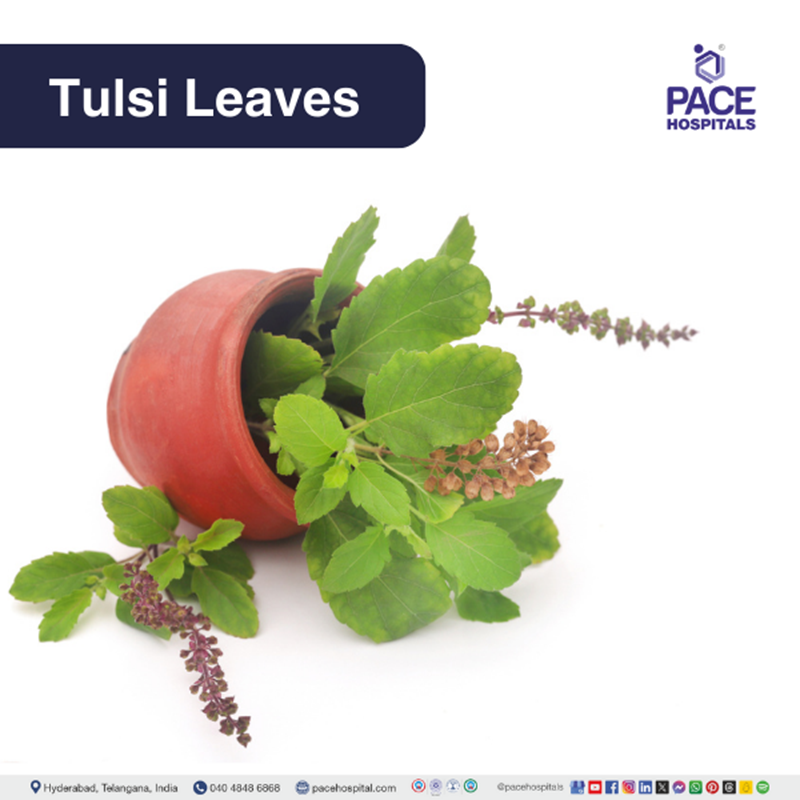
2) Tulsi leaves
Tulsi leaves, revered as holy basil, offer a wealth of medicinal benefits, notably their ability to combat acidity and regulate stomach acid levels. These leaves are brimming with potent compounds like eugenol and carminatives, renowned for their anti-inflammatory and antibacterial properties.
Eugenol effectively soothes inflammation within the gastrointestinal tract, while carminatives aid digestion and prevent excessive gas buildup in the stomach. By incorporating tulsi leaves into your daily routine, you can effectively soothe the stomach lining, diminish acid reflux, and alleviate discomfort associated with heartburn and other acidity-related symptoms.
3) Aloe Vera Juice
Aloe vera (Aloe barbadensis miller) has a soothing effect on the digestive system, helping to control acid production and reducing inflammation in the stomach. Aloe vera contains compounds that reduce irritation in the stomach and oesophagus. It helps heal the stomach lining and reduce the burning sensation associated with acidity.
Consume approximately 1/4 cup of aloe vera juice, preferably before meals, to soothe the digestive tract and decrease acidity. These methods are considered effective home remedies for bad acid reflux.
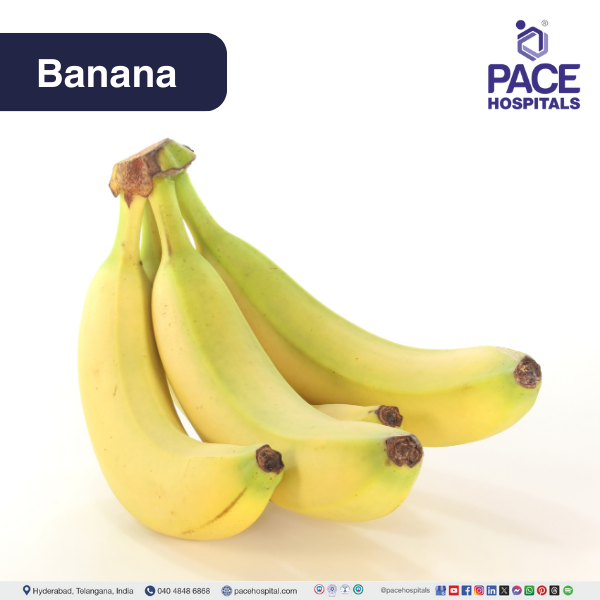
4) Bananas
Bananas (Musa paradisiaca Linn) are naturally alkaline and can help neutralise stomach acid. They contain potassium and natural antacids that can help coat the stomach lining, reducing the burning sensation of acidity. Additionally, bananas stimulate mucus production, protecting the stomach lining from acid damage.
To incorporate bananas as a home remedy for severe gas and acidity, try eating a ripe banana daily, either on its own or with meals. This simple addition to your diet can help naturally balance stomach acid levels and promote healthy digestion.
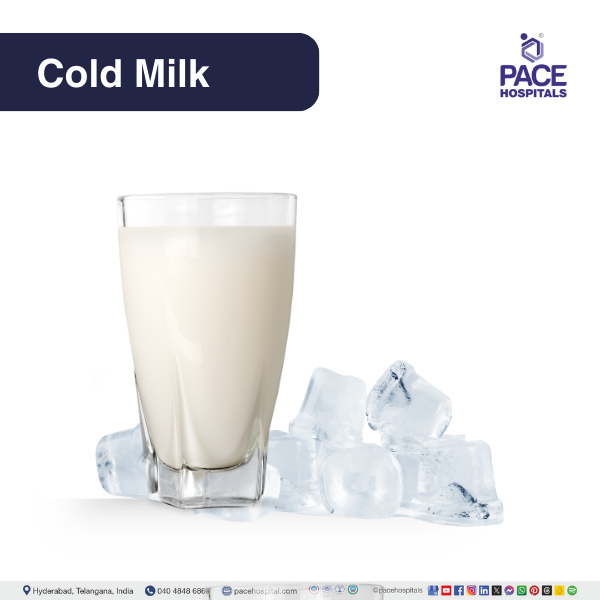
5) Cold Milk
For rapid relief from acidity symptoms, a glass of cold milk can be an effective remedy. Milk's ability to neutralize stomach acid is key to its efficacy. Containing calcium carbonate, a natural antacid, milk helps reduce the production of excess stomach acid.
Cold milk provides immediate relief from heartburn and acid reflux by effectively absorbing excess stomach acid, offering a soothing effect on the irritated lining.
The impact of milk on acid reflux can differ greatly from one individual to another. While some people may find relief in consuming milk, others may experience worsened symptoms due to lactose intolerance or the fat content in milk, which can stimulate stomach acid production.
If you frequently suffer from acid reflux or experience severe symptoms, it is crucial to consult a gastroenterologist for a proper diagnosis and treatment. Identifying personal triggers and implementing appropriate dietary and lifestyle changes can significantly improve your condition and overall well-being.
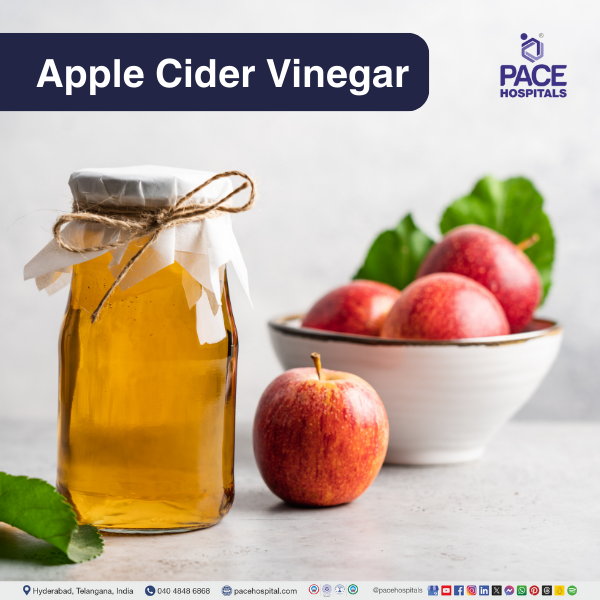
6) Apple Cider Vinegar
Although acidic in nature, apple cider vinegar is thought to help balance stomach acid levels. It contains acetic acid, which can stimulate the production of bile and digestive juices, helping the body digest food more efficiently and preventing acid reflux.
It can be taken by mixing 1-2 tablespoons with a glass of warm water before meals. Diluting it before taking it is essential to prevent throat or stomach lining irritation.
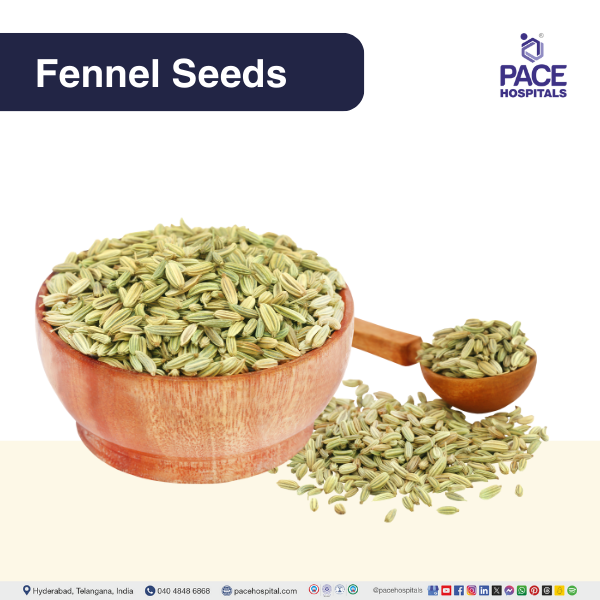
7) Fennel Seeds
Fennel (Foeniculum vulgare) seeds contain anethole, a compound recognized for its beneficial effects on digestion and ability to reduce acidity in the GI tract.
It aids in preventing acid reflux and helping to alleviate bloating and gas. Take a spoonful of fennel seeds after meals or brew fennel seed tea.
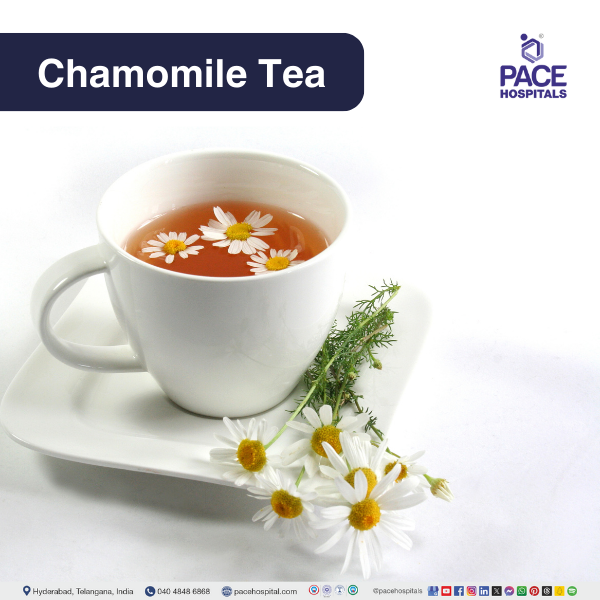
8) Chamomile Tea
Chamomile (Matricaria chamomilla) have anti-inflammatory properties that reduce inflammation in the oesophagus and stomach.
It contains flavonoids and antioxidants that help soothe the digestive system, easing symptoms of acidity. It also promotes relaxation, which can help reduce stress-induced acid reflux. Brew chamomile tea to enjoy after meals or before bed for a soothing effect on the stomach and better digestion.
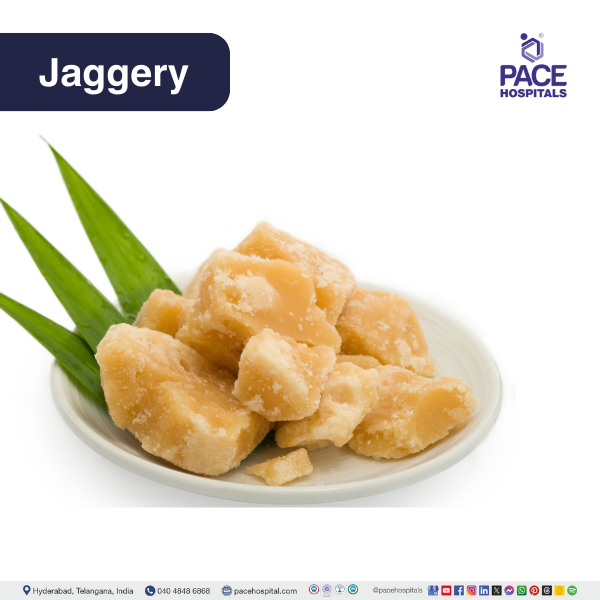
9) Jaggery
Jaggery, also known as gur, is a traditional Indian sweetener made from unrefined cane juice. This natural sweetener has been used for centuries in traditional medicine, including as a remedy for acidity.
Jaggery is believed to enhance digestion by stimulating the production of digestive enzymes. This improved digestion leads to more efficient food breakdown, thereby reducing the formation of excess gas in the stomach. This process helps soothe the stomach lining and alleviate acidity symptoms.
Furthermore, jaggery is a rich source of essential minerals such as magnesium, potassium, and iron. These minerals play a crucial role in neutralizing excess stomach acid, providing relief from acid reflux and heartburn.
To incorporate jaggery into your acidity relief regimen, consume a small piece after meals or add it to your tea or coffee. However, it's important to remember that jaggery is high in calories and sugar. Therefore, moderation is key when consuming jaggery. As with any natural remedy, consulting with a healthcare professional before using jaggery to treat acidity is always recommended.
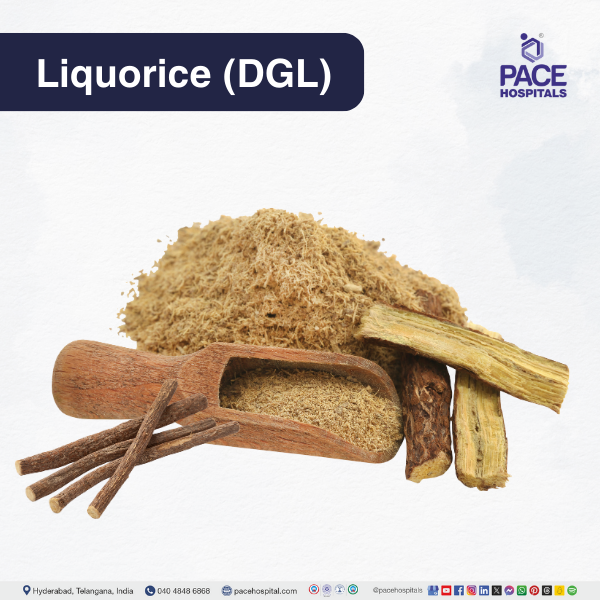
10) Liquorice (DGL)
Liquorice (Glycyrrhiza glabra) is known to protect the stomach lining and reduce symptoms of acidity. Deglycyrrhizinated liquorice (DGL) is a form of liquorice that has been processed to remove glycyrrhizin. DGL stimulates mucus production in the stomach lining, protecting it from the corrosive (damaging) effects of stomach acid.
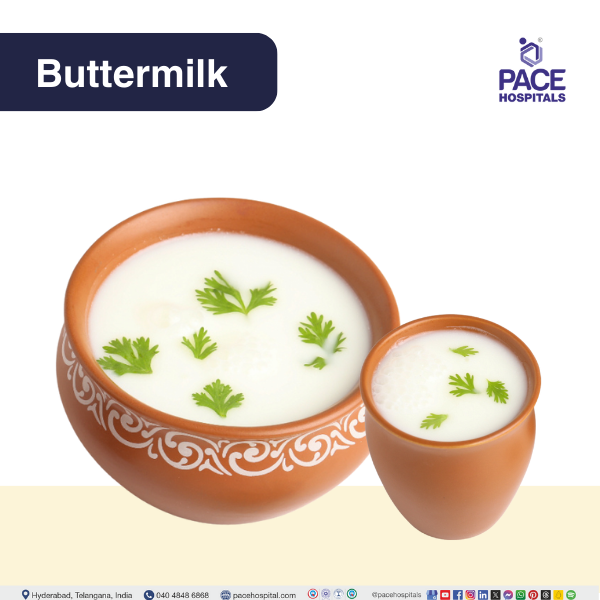
11) Buttermilk
Buttermilk is considered a natural remedy for acidity, which can neutralise the excessive acids in the stomach and calm it.
It contains the lactic acid that helps digest complex foods, and when combined with some other Indian species, it can instantly relieve acid reflux.
Drinking plain buttermilk or a pinch of salt or adding a few more spices, such as black pepper and coriander leaves, can make it more delicious and effectively manage discomfort.
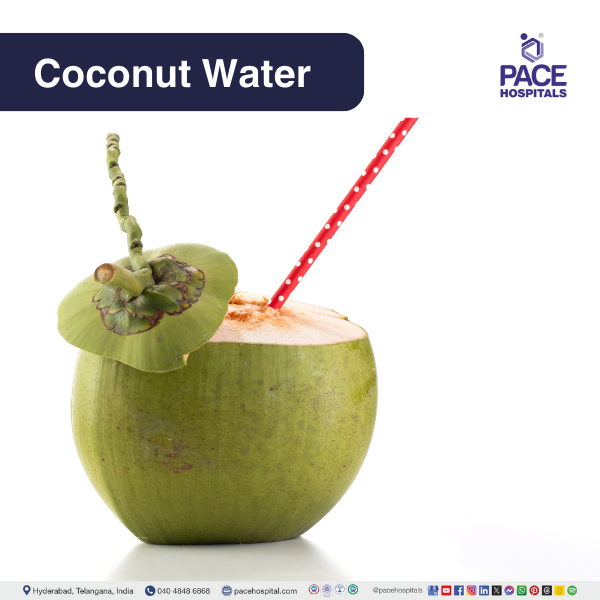
12) Coconut water
Coconut (Cocos nucifera) water is hydrating and aids in sustaining a healthy pH balance in the stomach. It contains electrolytes, including potassium and magnesium, that help neutralise excess acidity in the stomach, promoting healthy digestion and relieves symptoms of acid reflux.
It can be taken directly as a glass of fresh coconut water, or when a person experiences acidity, it can maintain hydration and neutralise stomach acid.
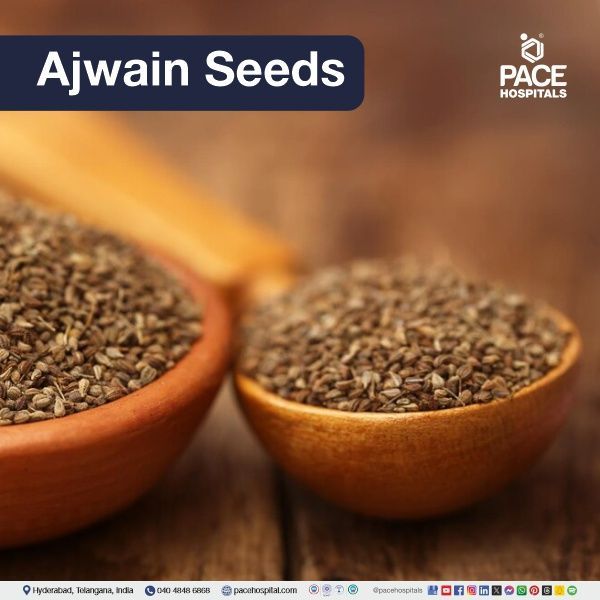
13) Ajwain seeds
Ajwain (Trachyspermum ammi) has anti-acidic properties and contains thymol, a compound that helps secrete gastric juices and treats acidity instantly.
Taking a teaspoon of ajwain with a pinch of salt and eating it directly can soothe indigestion and treat acidity.
Moreover, one can add slightly roasted Ajwain seeds to a glass of warm water to cure the acid reflux. These methods are considered effective home remedies for reducing acidity.
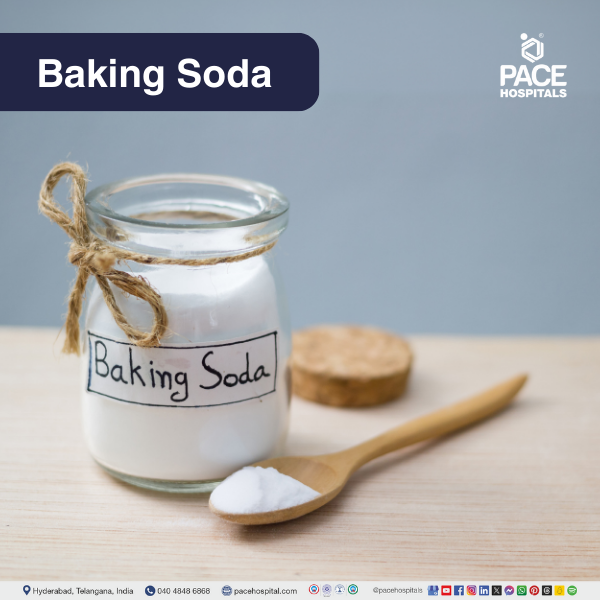
14) Baking soda
Baking soda, also known as sodium bicarbonate, acts as a natural antacid, offering relief from acidity symptoms. It works by effectively neutralizing excess stomach acid, thereby reducing the discomfort associated with acid reflux and heartburn.
To use baking soda for acidity relief:
- Dissolve 1/2 to 1 teaspoon of baking soda in a glass of water (approximately 8 ounces).
- Stir thoroughly and consume the mixture slowly.
- Observe for a few minutes to assess symptom improvement.
It's crucial to remember that baking soda is high in sodium. Consequently, it should not be considered a long-term solution for managing acidity. If you experience frequent acidity symptoms, consulting with a healthcare professional for proper diagnosis and treatment is highly recommended.
Furthermore, baking soda should not be administered to children under the age of 5, as it can pose serious health risks. If you are pregnant or have any underlying health conditions, seeking guidance from a healthcare professional before using baking soda to alleviate acidity is always advisable.
15) Lifestyle tips
Adopting these healthy lifestyle habits can play a significant role in reducing acidity levels in the body, promoting better digestive health, and preventing the discomfort associated with acid reflux or heartburn.
- Wear loose-fitting clothes: Tight-fitting clothing may cause additional pressure on the stomach, causing stomach acids to rise into the esophagus and contributing to acidity. Wear loose clothing and avoid outfits that fit tightly around the mid-abdomen to help relieve occasional symptoms. Choosing comfortable, loose-fitting attire is a simple yet effective strategy among many home remedies for acidity and gas problem.
- Eat small frequent meals: Larger meals will take longer to empty from the stomach, exerting pressure on the muscle that prevents acid from rising. This can cause symptoms of acidity. Hence, it is recommended to try having small, frequent meals instead, especially if anyone is experiencing acidity. In fact, a light meal is recommended during the night-time particularly. Consuming smaller, more frequent meals throughout the day is considered one of the best home remedy for acidity and acid reflux for many individuals.
- Avoiding the triggers: Foods that trigger acidity typically include fatty, spicy, processed and fried foods, as they may irritate the stomach lining and increase acid production. Citrus fruits, oranges, lemons, and tomatoes are acidic in nature and may worsen symptoms of acid reflux. Caffeinated beverages, carbonated drinks, and alcohol can relax the sphincter of the lower oesophagus, allowing stomach acid to flow back into the oesophagus. Additionally, chocolate, garlic, and onions are known to trigger acidity in some people. Identifying and avoiding these trigger foods is a crucial part of many home remedies for acid reflux.
- Raising the Head of the Bed: If anyone is experiencing acidity symptoms during sleep, try elevating the head of the bed; that helps keep the esophagus above the stomach, preventing stomach acid from rising up and causing uncomfortable symptoms at night. This simple adjustment is a valuable tip among many home remedies for heartburn and acidity to improve sleep quality and overall well-being.
- Sleeping on your left side: Adjusting your sleep position can help provide relief from acidity symptoms. When you lie down flat, stomach acid can flow back into the esophagus, causing acid reflux and heartburn. Elevating your head and upper body can help prevent this from happening. Studies have shown that sleeping on your right side can worsen acid reflux symptoms. Try sleeping on your left side instead, as this position can help keep your stomach below your esophagus. These simple positional adjustments are valuable home remedies for stomach acid that can significantly improve sleep quality and reduce discomfort.
- Stay upright after eating: Two to three hours is the amount of time recommended to stay upright after eating to avoid stomach acid from rising into the esophagus. That's why eating early in the evening is best so the meal is digested by bedtime. This practice of maintaining an upright posture after meals is a key component of many home remedies for acid reflux in adults aimed at preventing nighttime discomfort.
- Reducing the use of alcohol and tobacco: Smoking can weaken the muscles, preventing stomach acid from rising into the oesophagus. Drinking alcohol compromises the same muscle, stimulates acid production and makes the oesophagus more sensitive to acid. Reducing or stopping the consumption of cigarettes and alcohol cigarettes is recommended to help prevent further episodes of acidity. Abstinence from smoking and alcohol is a crucial home remedy for heartburn and acid reflux, particularly for those seeking long-term relief from these uncomfortable symptoms.
- Managing weight: Excess body weight can increase pressure on the stomach, leading stomach acid to flow into the esophagus. Therefore, managing weight is important to prevent many chronic conditions. Regular physical exercise and eating a healthy, balanced diet can help achieve a healthy weight. Maintaining a healthy weight is considered one of the best home remedy for acid reflux, especially for individuals who are overweight or obese.
Stress Reduction Techniques to Alleviate Acid Reflux Symptoms
Stress can significantly worsen acid reflux symptoms. Here are some stress reduction techniques that may help:
- Deep Breathing Exercises: A simple and effective way to reduce stress is through deep breathing techniques, such as diaphragmatic breathing, which can help calm the nervous system and decrease stress hormones.
- Meditation and Mindfulness: Practices that promote awareness of the present moment, like mindfulness meditation, can help you better understand your body and mind, allowing you to effectively manage stress.
- Yoga: These gentle forms of exercise can help relax both the mind and body, decrease stress hormones, and improve overall well-being, thereby alleviating acid reflux symptoms.
- Progressive Muscle Relaxation: This technique, which involves tensing and releasing different muscle groups systematically, can promote deep relaxation and reduce stress.
Indian home remedies for acidity during pregnancy
During pregnancy, acidity can be relieved with several Indian home remedies. Drinking a glass of lukewarm water with a teaspoon of honey can soothe the stomach. A mixture of ginger and cumin seeds can effectively reduce acid reflux.
Yoghurt is the most effective probiotic available for heartburn relief in pregnancy. Extremely safe for consumption, yoghurt can be taken to every meal to help soothe and cool the stomach acids and prevent heartburn. Drinking buttermilk with a pinch of black salt provides relief from acidity. Always consult a gynaecologist before trying remedies during pregnancy.
Frequently Asked Questions (FAQs) on Acidity
Does tea help relieve acidity?
Two-thirds of the people in the world consume tea. Certain types of tea, like chamomile or ginger tea, can help soothe acidity by reducing inflammation and calming the stomach. However, caffeinated teas such as black or green tea may aggravate acid reflux in some people and are linked with increased secretion of gastric acid, so it's best to choose herbal options for relief.
What is the best home remedy for acidity?
One of the best remedies for acidity is lifestyle modification, including avoiding smoking and drinking alcohol. Trying to identify foods avoid them that trigger acidity and other GERD symptoms, such as coffee, chocolate, citrus, and carbonated drinks. Chewing sugar-free gum stimulates production and saliva, which naturally neutralises stomach acid and helps ease the discomfort of acid reflux. Coconut water is very effective in restoring the stomach's pH balance and neutralising excess acid.
How do I flush acid out excess acid in the stomach?
To flush excess acid out of the stomach, drinking plenty of water is crucial. Water helps dilute stomach acid and facilitates its removal from the body. Drinking a glass of water after meals can also aid digestion and reduce acid buildup. Alkaline foods, such as cucumbers, melons, and leafy greens, can help neutralise acid in the stomach, promoting a more balanced pH.
What are the home remedies for gastritis and acidity?
For both gastritis and acidity, bananas are a great choice, helping neutralise stomach acid and soothing the stomach lining. Additionally, avoiding alcohol, caffeine, and stress can significantly reduce symptoms of both gastritis and acidity.
Does milk help relieve acidity?
While low-fat or skim milk may temporarily buffer stomach acid, it may also cause acidity to worsen. After a meal, a glass of milk may seem like a good idea; however, certain nutrients in milk, such as fat, may stimulate the stomach to produce more acid. In addition due to lactose intolerant or fat in milk may increase acidity symptoms.
What is a home remedy for severe hyperacidity?
In cases of severe hyperacidity, apple cider vinegar can be surprisingly helpful. Despite being acidic, apple cider vinegar promotes alkaline bile production in the stomach, helping to balance acid levels over time.
Do fruits and vegetables help relieve acidity?
Fruits and vegetables are a recommended part of a balanced diet; certain ones may help reduce or neutralise the acid. Increasing the fibre intake from fruits and vegetables can have a protective effect against acidity.
While some vegetables such as tomato, garlic and onion may aggravate acidity, certain ones such as broccoli, cucumber and spinach have even been shown to neutralise acid directly. Papaya, or papaya juice, has also been suggested to help reduce acidity symptoms.
What are the home remedies for acidity and gas problem?
For acidity and gas, drinking warm water with baking soda (a teaspoon) can help neutralize acids in the stomach. Fennel seeds (saunf) after meals aid digestion and reduce bloating. Ginger tea or chewing a small piece of ginger with a pinch of salt can alleviate gas and acidity. Consuming a mix of cumin and coriander seeds also helps in easing digestion.
Do herbal remedies help relieve acidity?
Herbal remedies have been used successfully in ayurvedic and non-Western medicines for thousands of years. Based on this, some studies have been done on herbs commonly used to treat indigestion, such as caraway, cumin, fennel, ajwain, chamomile, and lemon balm. All of these have beneficial effects on digestion, which could reduce acidity symptoms. These herbs can be considered home remedies for chest burn due to acidity.
Share on
Request an appointment
Fill in the appointment form or call us instantly to book a confirmed appointment with our super specialist at 04048486868


